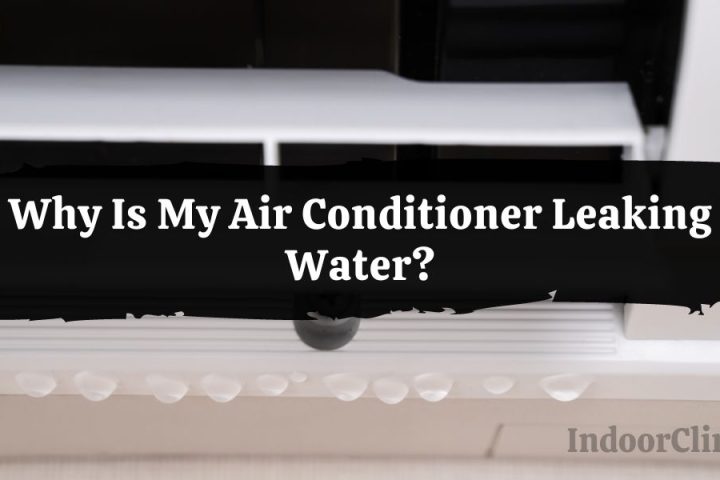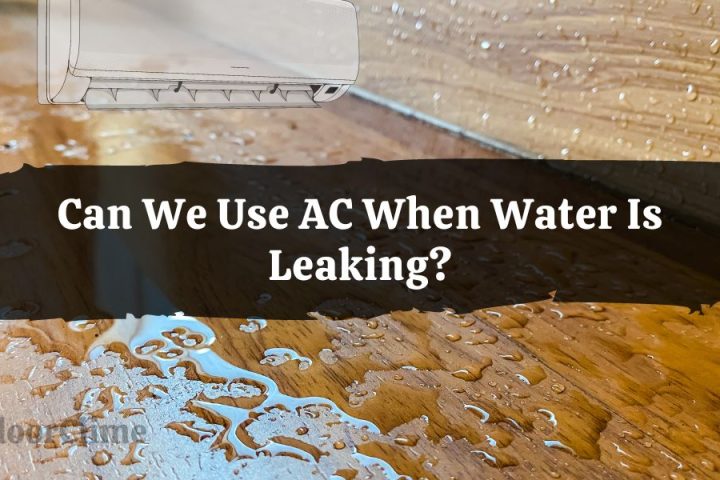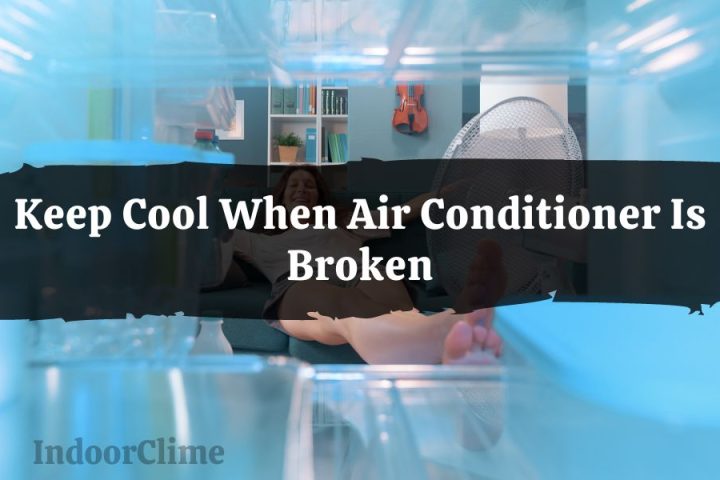One of the primary functions of an air conditioner is to convert dirty air into cool, pure air. Aside from that, you can use it for various other things. Air conditioners can benefit individuals because of their numerous advanced features and standard attributes.
Your atmosphere will always be more comfortable and convenient with an air conditioner. However, it also comes with it some issues. Several people want to use their AC units all year, even in winter. As a result, some air conditioners have heating elements. In cold weather, they will warm the environment.
This guide teaches how water heaters affect air conditioners, issues that an air conditioner can cause, and other feasible options.
Water Heater affects air conditioners by using an electric heating element to convert electrical energy into heat. An AC unit is a heat pump; it does not generate heat but moves it. An air conditioner water heater reduces electrical concerns by removing the excessive electrical consumption of an electric water heater from our systems.
Does Water Heater Affect Air Conditioner?
ACWH is available for consumers who want to use their air conditioner as a water heater (Air Conditioner Water Heater). HVAC can also be used (Heating, Ventilation, Air Conditioner).
Because of their superior features, these air conditioners have become highly popular. However, the water heater can sometimes interfere with the air conditioner.
We can heat our water for free using an air conditioner water heater. These essential gadgets are inexpensive to purchase and heat the water by utilizing the heat your air conditioner removes from your home.
What is an ACWH?
The Air Conditioner Water Heater is a simple device that utilizes heat that an air conditioner would otherwise waste to heat water.
The heater is an insulated water tank, much like a standard electric water heater. However, the tank features a heating coil from the air conditioning system that heats the water instead of a heating element.

How Do Water Heaters Affect Air Conditioners?
Keeping an air conditioner in good working order can sometimes be a chore. If you use an air conditioner with a water heater, you may encounter maintenance concerns regularly. Water heaters have a variety of effects on air conditioners.
Leakage Issue
Water leakage is a common issue while using an air conditioner. Its water-heating function has an impact on the air conditioner.
The tank/valve eventually fills up when you use it to heat water; the tank/valve eventually fills up. As a result, the tube overflows, resulting in leakage issues.
Rupture/Explosion
Air conditioners must release any accumulated pressure or heat to avoid an explosion. Unfortunately, the heaters occasionally fail to function.
It causes rupture/explosion problems in the air conditioner.
Disintegration
Overuse can cause some water heaters to deteriorate. To avoid significant damage, inspect the rod inside the heater at this point.
The anode rod aids in the precaution of rust in air conditioners. However, it can be damaged if not checked regularly.
Inefficiency In Energy Use
When the water heater is turned on, the minerals in the tank solidify into solid silt particles. These particles can harm the tank by reducing its energy efficiency.
Therefore, it would be preferable to regularly clean the tank’s bottom to keep your air conditioner safe.
Problem with Upkeep
Maintenance becomes more complex when a water heater interferes with the air conditioner. You will need to clean the tank regularly.
Air conditioners, in general, do not require any additional maintenance. However, while utilizing water heaters with them, you should double-check.
Difference Between Water Heater & Furnace
First, let us determine the difference between a Water Heater and a Furnace to understand better their relationship in creating heat and ventilation.
What is a Water Heater?
A heat exchanger brings the heat to the water as it enters the water heater’s tank. The gas burner will heat the cold water in the natural gas heater.
At the same time, electric water heaters are outfitted with a unique heating element known as a heat exchanger, which transmits energy to and heats the water.
What is a Furnace?
They can produce enormous amounts of heat, subsequently transmitted into a building’s ventilation system and the rooms within that same building.
This system is in charge of heating and cooling your home and comprises furnaces, air conditioners, heat pumps, ducting, thermostats, and other home comfort controls.
Water Heater vs. Furnace
Furnaces provide warmth to our homes by heating air and propelling that hot air through the central heating system’s ducts.
On the other hand, water heaters supply hot water for our sinks, showers, dishwashers, washing machines, and other equipment.
In other words, they don’t heat our homes with hot water — that’s what boilers do.
Does the Water Heater Affect the Heat?

Your water heater can heat water but may also heat your home. This is the best alternative if you live in a pleasant area and your home needs to be adequately sealed and insulated.
This type of system necessitates using a combination boiler. This single device can heat water and warm your home by rotating the knobs or pressing the buttons to the desired position.
If the temperature falls below the set point, the thermostat signals the boiler to raise the heat to the desired level. When this point is reached, the boiler adjusts to maintain the heat at the proper temperature, saving energy.
This technology does not heat both the house and the water simultaneously. Instead, it will warm your radiators to provide warmth to your home or heat the tap water, whichever is preferred.
When the hot water is turned on, a valve inside the boiler redirects heat into the hot water supply system, allowing hot water to flow through the taps. The valve is re-routed to the source when the tap is shut off.
What Is A Combi Boiler?
A combi boiler is a technology that may produce hot water on demand rather than holding it in a tank or cylinder as a traditional boiler does.
This hot water can power your heating system, appliances, and faucets. A combi boiler is named because it is a single unit that performs two ‘combined’ functions: heating and hot water.
Is the Water Heater Connected To the Air Conditioner?
Not always. Some air conditioner units use heat strips or heating elements to warm the flat. Heat strips are made up of a sequence of coils. They are linked to the air handler.
It wouldn’t be entirely unexpected to see water surrounding a water heater, boiler, or swamp cooler. After all, water is actively used to operate all of these systems.
On the other hand, a central air conditioner does not utilize water. It is not linked to a water supply pipe or a water tank.
Consider dialing down the temperature on your water heater or setting it to “vacation” mode if you have a modern type with this capability to save money on your water heating bills.
You’ll know if you have this feature because the thermostat is usually labeled with a “VAC.”
The “VAC” Option on your Water Heater
The VAC setting lowers the water temperature to 50 degrees Fahrenheit, allowing your water heater to work less complicated. (Normally, the water heater maintains a steady temperature of 120 to 130 degrees Fahrenheit.) However, lowering the temperature keeps your heater more stable, preventing overload when you turn it back on.
Upkeep of HVAC Systems Using Water Heaters
An HVAC system that incorporates a water heater is a significant financial investment. Therefore, you should follow the manufacturers’ maintenance techniques and timetable to guarantee that the item operates efficiently and lasts for years.
- Maintain clean, debris-free vents and flues (if your system has them). This allows for unrestricted ventilation and exchange.
- Periodically inspect for leaks. Water, fuel, and power are all wasted due to leaks. As a result, they dramatically raise operating costs.
- Every month, check the water level. Operating your unit when the water level is low can cause it to break down.
- Lubricate your HVAC system’s moving parts regularly.
- Every six months, flush or drain the water in the system. Then carefully clean the insides. This keeps mold at bay.
- Remove any lime deposit when hot water flows through a mechanical device by de-scaling.
- Make sure your water heater’s hot pipe is well-insulated. This avoids heat loss and saves energy. To reduce heat loss, insulate the heater as well.
- Minimize the temperature of your water heater to conserve electricity.




